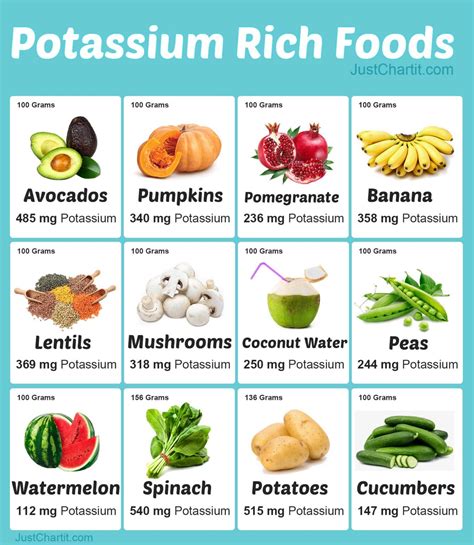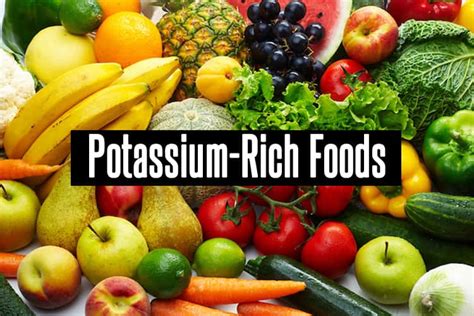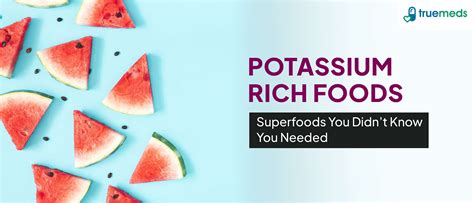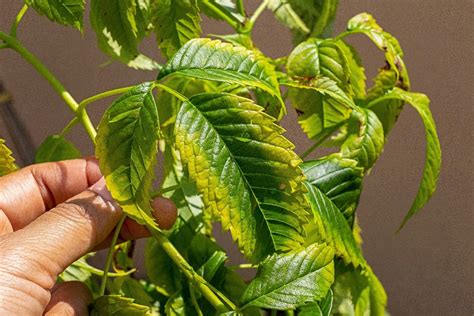Intro
Discover foods rich in potassium, including bananas, leafy greens, and sweet potatoes, to boost heart health, lower blood pressure, and support muscle function with these potassium-rich diet essentials.
Potassium is an essential mineral that plays a crucial role in maintaining various bodily functions, including heart health, blood pressure, and muscle function. A diet rich in potassium can help mitigate the risks of chronic diseases, such as heart disease, stroke, and osteoporosis. With the importance of potassium in mind, it's vital to incorporate potassium-rich foods into our daily meals. In this article, we'll delve into the world of potassium-rich foods, exploring their benefits, sources, and ways to incorporate them into our diets.
A well-balanced diet that includes a variety of whole foods can provide adequate amounts of potassium. However, many people fail to meet their daily potassium needs, which can lead to a range of health problems. The recommended daily intake of potassium is 4,700 milligrams for adults, but the average person consumes only about 2,600 milligrams per day. This disparity highlights the need to focus on potassium-rich foods and make informed dietary choices. By doing so, we can reap the rewards of a potassium-rich diet, including improved heart health, reduced blood pressure, and enhanced overall well-being.
The importance of potassium cannot be overstated, and it's essential to understand the role it plays in our bodies. Potassium helps regulate fluid balance, supports healthy blood pressure, and facilitates the transmission of nerve impulses. It also aids in muscle contraction and relaxation, making it a vital mineral for athletes and individuals who engage in regular physical activity. Furthermore, potassium helps maintain healthy bones by regulating calcium metabolism and reducing the risk of osteoporosis. With these benefits in mind, let's explore the various potassium-rich foods that can help us meet our daily needs.
Potassium-Rich Foods

Potassium-rich foods can be broadly categorized into several groups, including fruits, vegetables, whole grains, lean proteins, and dairy products. Some of the richest sources of potassium include leafy greens like spinach, kale, and collard greens, as well as fruits like bananas, avocados, and apricots. Legumes, such as white beans, lentils, and chickpeas, are also excellent sources of potassium, making them a great addition to a variety of dishes. Additionally, fatty fish like salmon, tuna, and mackerel are rich in potassium, as well as other essential nutrients like omega-3 fatty acids.
Top Potassium-Rich Foods
Some of the top potassium-rich foods include: * Spinach (1 cup cooked: 840 milligrams) * Sweet potatoes (1 medium: 542 milligrams) * Avocados (1 medium: 708 milligrams) * Bananas (1 medium: 422 milligrams) * Apricots (1 cup dried: 1,478 milligrams) * White beans (1 cup cooked: 1,189 milligrams) * Lentils (1 cup cooked: 731 milligrams) * Salmon (3 ounces cooked: 534 milligrams) * Tuna (3 ounces cooked: 484 milligrams) * Mackerel (3 ounces cooked: 441 milligrams)Benefits of Potassium-Rich Foods

The benefits of potassium-rich foods are numerous and well-documented. A diet rich in potassium can help lower blood pressure, reduce the risk of heart disease, and promote healthy bones. Potassium also plays a crucial role in maintaining healthy muscle function, which is essential for athletes and individuals who engage in regular physical activity. Furthermore, potassium-rich foods can help reduce the risk of kidney stones, promote healthy digestion, and support immune function.
Potassium and Heart Health
Potassium is essential for maintaining healthy heart function, and a diet rich in potassium can help reduce the risk of heart disease. Potassium helps regulate blood pressure, which is a major risk factor for heart disease. By consuming potassium-rich foods, individuals can help lower their blood pressure and reduce their risk of heart disease. Additionally, potassium helps regulate heart rhythm, which can help prevent arrhythmias and other heart-related problems.Incorporating Potassium-Rich Foods into Your Diet

Incorporating potassium-rich foods into your diet can be easy and delicious. Start by adding leafy greens like spinach and kale to your salads, smoothies, and sautéed dishes. Avocados are a great addition to sandwiches, salads, and omelets, while bananas are a convenient snack on-the-go. Legumes like lentils and chickpeas can be added to soups, stews, and curries, while fatty fish like salmon and tuna can be grilled or baked for a healthy and flavorful meal.
Tips for Increasing Potassium Intake
Some tips for increasing potassium intake include: * Eat a variety of whole foods, including fruits, vegetables, whole grains, lean proteins, and dairy products. * Incorporate leafy greens like spinach and kale into your meals. * Add avocados to your sandwiches, salads, and omelets. * Snack on bananas and other potassium-rich fruits. * Use herbs and spices to add flavor to your meals instead of salt. * Limit your intake of processed and packaged foods, which are often low in potassium.Potassium Deficiency

A potassium deficiency, also known as hypokalemia, can occur when the body loses too much potassium or when the diet is inadequate. Symptoms of potassium deficiency include muscle weakness, fatigue, and heart palpitations. Severe potassium deficiency can lead to muscle paralysis, respiratory failure, and even death. Causes of potassium deficiency include excessive sweating, vomiting, diarrhea, and certain medications like diuretics.
Symptoms of Potassium Deficiency
Some symptoms of potassium deficiency include: * Muscle weakness and fatigue * Heart palpitations and arrhythmias * Muscle cramps and spasms * Constipation and abdominal cramping * Fatigue and weakness * Confusion and disorientationConclusion and Next Steps

In conclusion, incorporating potassium-rich foods into your diet can have a significant impact on your overall health and well-being. By understanding the importance of potassium and making informed dietary choices, you can reduce your risk of chronic diseases and promote healthy bodily functions. To take the next step, start by adding potassium-rich foods to your meals and snacks, and consider consulting with a healthcare professional or registered dietitian for personalized nutrition advice.
What are the richest sources of potassium?
+Some of the richest sources of potassium include leafy greens like spinach and kale, fruits like bananas and avocados, legumes like white beans and lentils, and fatty fish like salmon and tuna.
What are the symptoms of potassium deficiency?
+Symptoms of potassium deficiency include muscle weakness, fatigue, and heart palpitations. Severe potassium deficiency can lead to muscle paralysis, respiratory failure, and even death.
How can I increase my potassium intake?
+Some tips for increasing potassium intake include eating a variety of whole foods, incorporating leafy greens into your meals, adding avocados to your sandwiches and salads, snacking on bananas and other potassium-rich fruits, and using herbs and spices to add flavor to your meals instead of salt.
We hope this article has provided you with valuable insights into the importance of potassium-rich foods and how to incorporate them into your diet. If you have any further questions or comments, please don't hesitate to reach out. Share this article with your friends and family, and take the first step towards a healthier, happier you.
